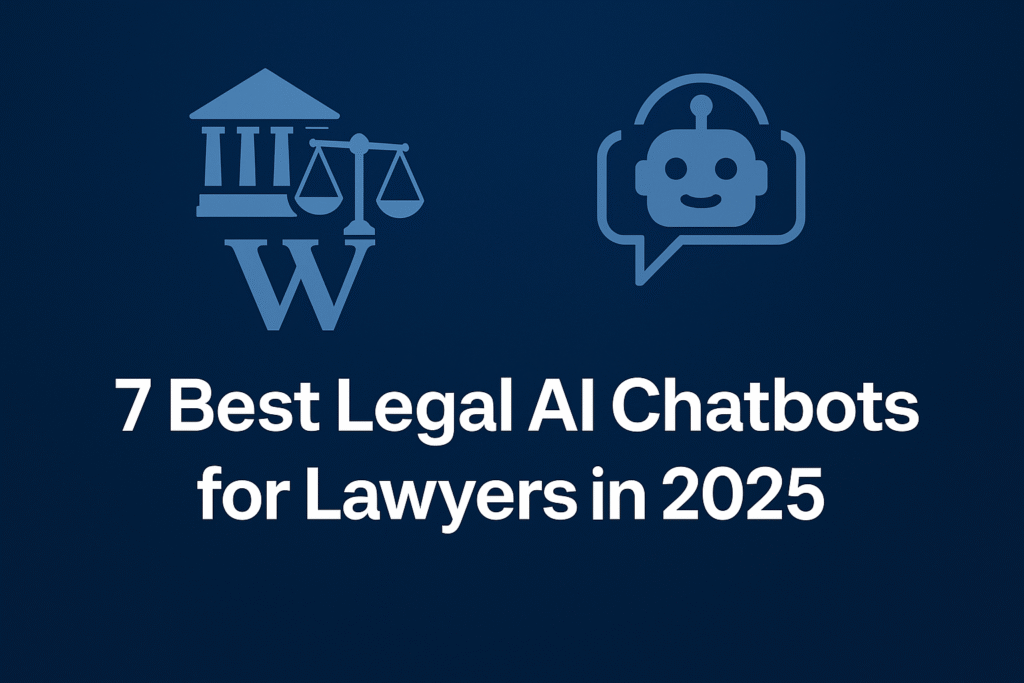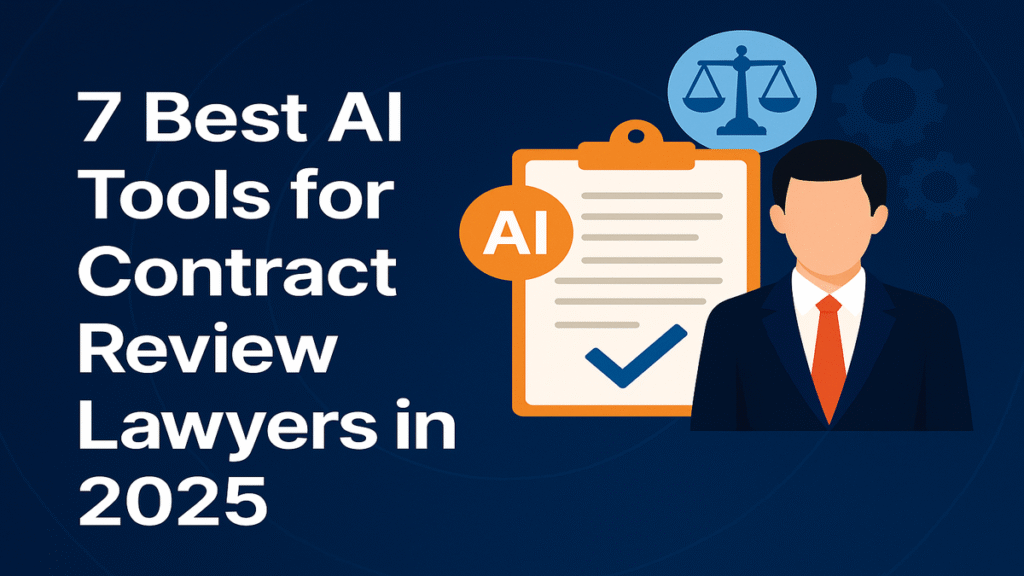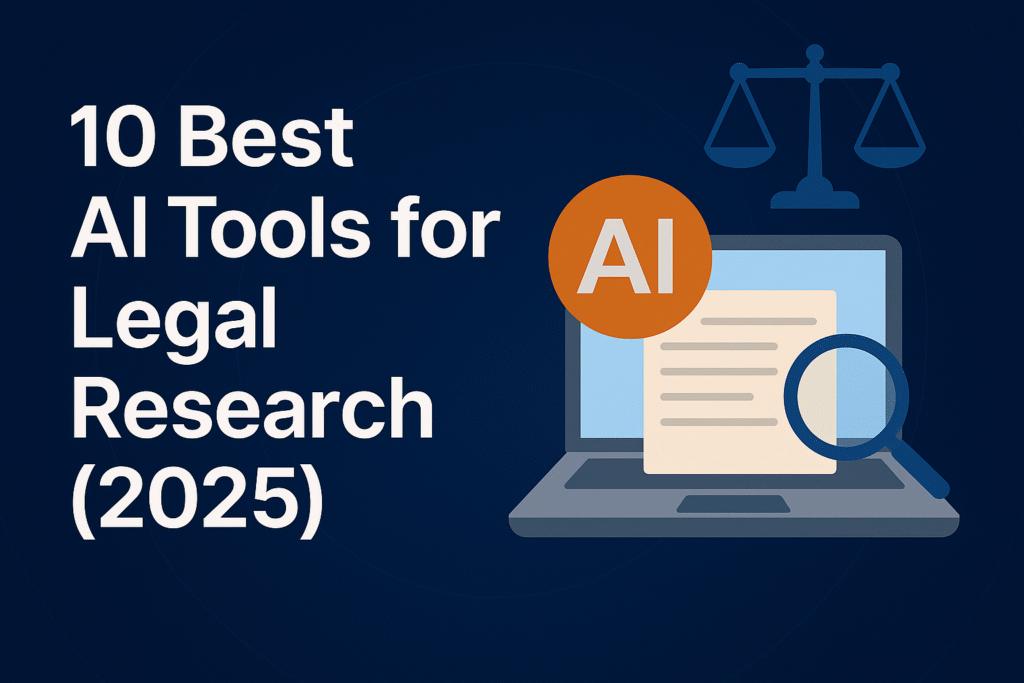If you’re a time-starved lawyer, you don’t need “AI” in the abstract—you need a reliable, cite-grounded assistant that makes research, drafting, and review faster without risking ethics or confidentiality. This roundup highlights the best legal AI chatbots you can deploy right now, what they’re good at, and how to choose the right fit for your firm.
| Tool | Best For | Core Strength | Notable Guardrails / Sources |
|---|---|---|---|
| Lexis+ AI | Research + drafting inside Lexis ecosystem | Strong citations, personalized assistant experience | Answers grounded in LexisNexis content; AI headnotes |
| Westlaw Precision AI | Case-law research and cite-checking | Generative features across Westlaw + Quick Check | Quote verification; integrates with TR ecosystem |
| CoCounsel Legal (TR) | Agentic research + workflow orchestration | “Deep Research” planning + transparent steps | Grounding via Westlaw / Practical Law |
| vLex Vincent AI | Global, multi-jurisdiction research | Agentic workflows, fast product cadence | Broad international primary/secondary sources |
| Harvey | Enterprise-grade, customizable assistant | Deep integrations and firm co-built workflows | Source-grounded outputs; expanding partnerships |
| Bloomberg Law AI Assistant | Research for Bloomberg Law subscribers | Answer-style results with granular attribution | Citation-rich, opt-in answer module |
| Spellbook | Contract drafting/redlining in Word | Clause-level suggestions, playbooks, precedent library | Zero-data-retention options; stays in .docx |
1) Lexis+ AI
Why it stands out: A mature, legal-specific assistant layered on proprietary Lexis content, with strong linked citations and a personalized assistant experience.
Best for: Firms already on LexisNexis that want low-friction adoption.
Use cases: Case-law Q&A, drafting/revising memos, extracting rules with links to authorities.
Watch-outs: Works best if your team already relies on Lexis content sets.
2) Westlaw Precision AI
Why it stands out: Generative features are woven across research, with Quick Check to verify quotations and surface missing or mis-cited authorities.
Best for: Litigators and researchers who want guard-railed, cite-checked outputs.
Use cases: Case-law exploration, fact pattern testing, quote verification.
Watch-outs: Best value for Westlaw shops.
3) CoCounsel Legal (Thomson Reuters)
Why it stands out: A move toward agentic AI—you assign a complex research task, and it plans, explains steps, and returns a source-linked answer.
Best for: Teams that want to delegate thorny research and standardize AI execution under human supervision.
Use cases: Deep multistep research, issue “surveys,” drafting with linked sources.
Watch-outs: Works best when paired with Westlaw/Practical Law.
4) vLex Vincent AI
Why it stands out: Global library + agile product cadence. Lets power users build custom workflows and tackle non-US matters confidently.
Best for: Cross-border practices and research teams wanting flexibility + international coverage.
Use cases: Multi-jurisdiction research, foreign-law reconnaissance, rapid synthesis.
Watch-outs: Check that your key jurisdictions are fully covered for your practice.
5) Harvey
Why it stands out: A law-first platform with robust integrations across DMS/CLM/eDiscovery and the ability to co-develop workflows with firms.
Best for: AmLaw firms and sophisticated in-house teams seeking a platform, not just chat.
Use cases: Complex drafting/review, knowledge-base tapping, bespoke workflows.
Watch-outs: Implementation and governance design matter—treat it like a platform rollout.
6) Bloomberg Law AI Assistant
Why it stands out: For Bloomberg Law subscribers, an answer layer with granular attribution, plus iterative chat history.
Best for: Practices already invested in Bloomberg Law.
Use cases: Research with fast answers and links; finance-adjacent matters.
Watch-outs: Value is highest if Bloomberg is already your primary research stack.
7) Spellbook (Word Add-In)
Why it stands out: If “chatbot” means contract help inside Word, this is it. Draft, redline, and review with playbooks and your precedent Library.
Best for: Transactional teams that live in Word and want faster NDAs/MSAs/SOWs.
Use cases: First drafts from playbooks, clause risk analysis, client-specific fallback logic.
Watch-outs: Focused on contracts; not a general legal research tool.
How to Choose the Right Legal AI Chatbot
1) Grounding & Citations
Pick tools that link to authoritative sources you already trust (Lexis, Westlaw, Bloomberg, vLex).
2) Jurisdiction Coverage
Do you need US-only or cross-border? If international, prioritize tools with global primary/secondary sources.
3) Guardrails & Privacy
Confirm zero-data-retention options, encryption, SSO, role-based controls, and that vendor training won’t use your client data.
4) Fit With Your Stack
Westlaw vs Lexis vs Bloomberg vs vLex—ride the stack you own to minimize change management.
5) Agentic Depth vs Simple Chat
If you need multistep planning/execution, shortlist CoCounsel and vLex; for in-Word contracts, choose Spellbook.
Editorial Verdicts
- On Lexis? Start with Lexis+ AI.
- On Westlaw? Shortlist Westlaw Precision AI and CoCounsel Legal.
- Global work? vLex Vincent AI is tough to beat.
- Contracts-heavy? Spellbook inside Word is fastest to value.
- Enterprise platform? Consider Harvey.
FAQs
Is it safe to use legal AI chatbots for research and drafting?
Yes—if you use platforms that ground answers in authoritative sources and keep human supervision in the loop. Always verify citations before filing or sending to clients.
How do these differ from generic chatbots like ChatGPT?
Legal assistants here are designed to cite to legal databases, respect enterprise security, and fit law-firm workflows—this is the difference between brainstorming and defensible work product.
Which is best for cross-border matters?
vLex Vincent AI for broad international coverage and frequent content updates.
Which is best for contracts inside Word?
Spellbook for drafting, redlining, playbooks, and precedent reuse directly in .docx.



